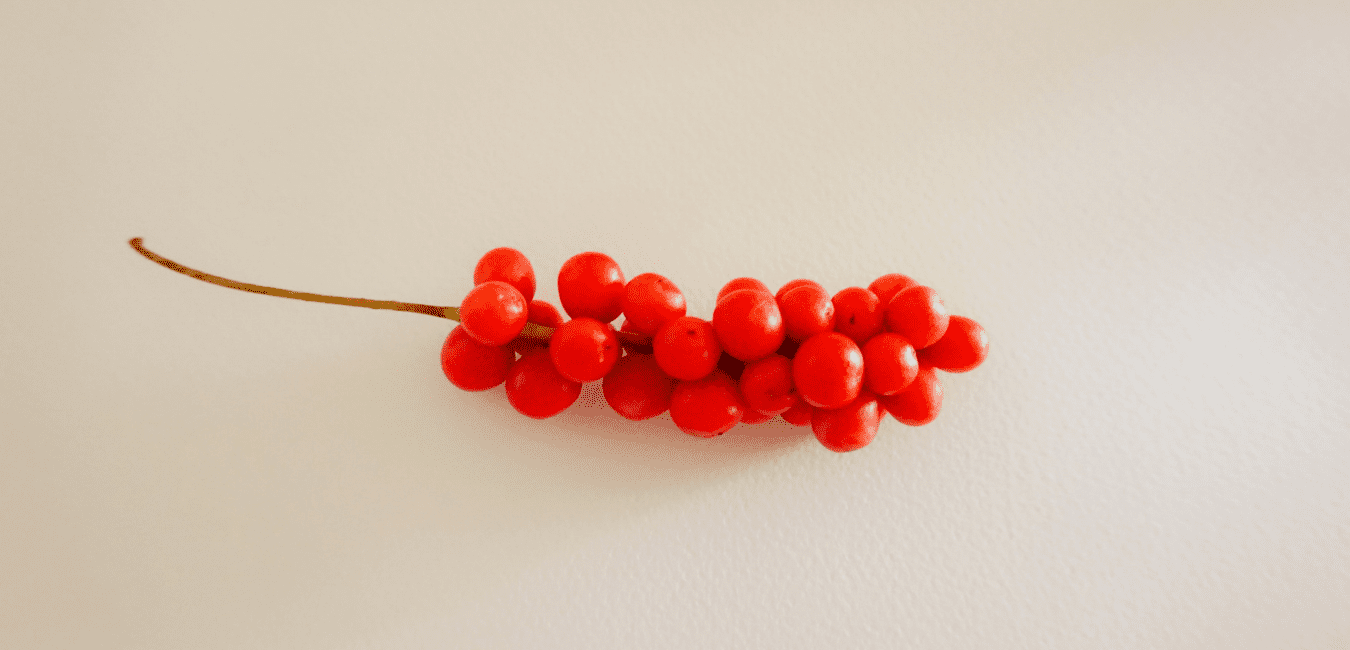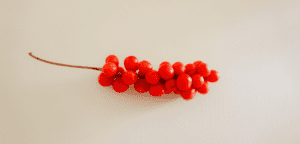

Schisandra, or “Wondrous Berry,” is a fruit that has been eaten for centuries in China.
It was used to help improve liver function and as an herbal remedy for chronic hepatitis.
In recent years the Schisandra fruit has been shown to have many other benefits as well.
Studies show that it can increase energy levels and mental performance.
In this article, we'll look at the various benefits of Schisandra, and discuss what makes it such a unique nootropic.
So without further ado, let's get started!
What is Schisandra?
Schisandra, or “Wondrous Berry,” is a fruit that has been eaten for centuries in China.
It was used to help improve liver function and as an herbal remedy for chronic hepatitis.
In recent years the Schisandra fruit has been shown to have many other benefits as well.
Schisandra is an adaptogen that has been shown to improve mental performance in short-term memory tasks.
One study even showed improvement on complex mental tasks like multi-tasking!
It’s also great for increasing energy levels and reducing fatigue, which is especially helpful if you’re new to nootropics.
It’s even been shown to have some antioxidant properties, which are great for improving overall health.
What Does the Research Show?
Studies show that it can increase energy levels and mental performance.
In one study on elderly Chinese subjects with chronic fatigue syndrome (CFS), Schisandra improved their quality of life by increasing their energy levels.
Schisandra has also been shown to have antidepressant properties, which can be helpful for those with low moods or depressive symptoms.
In another study on healthy adults, Schisandra was shown to improve mental performance when it comes to memory recall.
The subjects in the study were given two sets of numbers and asked to recite them back from memory after a half-hour delay.
Those who took 500mg of Schisandra twice daily showed significant improvement compared with those taking placebo.
What’s the Best Way to Use Schisandra?
Schisandra is most commonly used in either capsule or tablet form.
It can be taken on its own but is often stacked with other nootropics because of the synergistic effects.
Schisandra works best if it’s used consistently for at least two to three weeks before assessing overall effectiveness.
If you don’t experience any benefits after four or five days, try increasing the dosage.
It’s usually best to start with 500mg twice daily, and then adjust your dosage based on your results!
Why Schisandra is a Unique Nootropic
Schisandra is a 'novel' nootropic because it offers benefits that don't overlap with other popular choices such as Piracetam and Pramiracetam.
Schisandra is also unique because much of its research has been done in China, whereas other nootropics are more commonly researched in the West.
While it’s not clear yet if Schisandra can be used to improve memory directly like many others focus on doing, there’s enough evidence that it can help with mental focus and energy.
What makes Schisandra stand out is that it's an adaptogen.
An adaptogen is a natural substance that can help improve overall health and wellness by helping the body adapt to stress.
What is Schisandra good for?
Schisandra is good for increasing energy levels and mental performance.
It’s also helpful for reducing fatigue, which can be especially beneficial if you’re new to nootropics!
And while it hasn't been shown to directly improve memory like many other popular choices, Schisandra has shown some evidence that it enhances mental focus and recall.
It’s also great for increasing energy levels and reducing fatigue, which is especially helpful if you’re new to nootropics.
Antidepressant-like effects
Depression is a widespread problem that affects over 350 million people of all ages throughout the world, according to a WHO study from 2014.
It's also the most common health issue, affecting nearly 30% of people at some point in their life.
Depression is a heterogeneous illness characterized by symptoms of sadness. Depression can lead to suicide at its most severe.
The majority of major depressive disorder's clinical symptoms, such as delusions, anxiety, irritability, or sleeplessness, can be successfully treated with present psychotropic medications.
Nonetheless, cognitive impairments (such as a poor capacity to think or concentrate, or indecisiveness) may linger in individuals even after the appearance of depressive symptoms has ended or faded and significantly impact their social and occupational functioning.
Indeed, meta-analyses have shown that cognitive impairments persist in recovered patients.
For this reason, cognitive impairment is a viable target for both pharmacological and psychological therapies with the aim of improving function.
A novel standardized extract of Schisandra Chinensis (SCE) has been shown to possess antidepressant-like activity, as measured by the forced swimming test.
The results show that SCE can improve cognitive function in mice with depressive symptoms, suggesting it may be a potential treatment for major depression and mood disorders.
The effects of SCE on the monoamines, dopamine (DA) and serotonin (SE), were also studied in mice with depressive symptoms.
Administration of SCE extract for 21 days significantly increased the content of DA metabolites dihydroxyphenylacetic acid (DOPAC) and homovanillic acid (HVA).
Conversely, SE levels remained the same in SCE-treated mice.
These results suggest that chronic administration of SCE can enhance mood by increasing DA levels, which is known to have an antidepressant effect and is used as a biomarker for depression.
In addition, pretreatment with SCH significantly increased cAMP production mediated through dopamine D(Ⅱ) receptors (D(Ⅱ)R), which is thought to be related to an antidepressant mechanism.
As well as this, SCH increased the extracellular levels of dopamine in the prefrontal cortex (PFC).
Effects of Schisandra Chinensis on BDNF
According to this study, the integral optical density (IOD) of BDNF (brown particles) in the CUMS group was significantly lower than in the control group (p < 0.01).
With respect to cognitive function, SCE treatment (250 or 500 mg/kg) increased the number of positive hippocampal neurons and IOD in SCE (600 or 1200 mg/kg), indicating that SCO up-regulated the BDNF expression in hippocampal neurons.
This suggests that SCE may improve cognitive function and protect against neuronal loss in depression by stimulating the expression of BDNF.
Effects of Schisandra Chinensis on PI3K/AKT/GSK-3β signaling pathways
Antidepressants can activate the PI-AKT signaling pathway to treat depressive symptoms.
In the study, SCE inhibited GSK-β in a dose-dependent manner and increased pGSK-β levels at 150 mg/kg of SCE after 21 days of administration.
This suggests that inhibition of GSK phosphorylation by SCE may contribute to the improvement of depressive-like symptoms in CUMS mice.
This study showed that administration of SCO (50 and 100 mg/kg) for 21 days increased pGSK and Akt levels, while decreased GSK phosphorylation (Ser21).
SCH significantly inhibited PI-AKT expression in depressive mice.
These results suggest that the antidepressant-like activity of SCE is mediated by PI-AKT/GSK signaling pathways, and SCO may be a possible candidate for the treatment of cognitive dysfunction associated with major depression.
In Summary
Schisandra Chinensis (SCE) is a unique nootropic that has been shown to have antidepressant-like activity.
It is commonly used in traditional Chinese medicine for its anti-fatigue, antistress effects.
This herb has also been shown to increase levels of dopamine metabolites and BDNF expression in the brain.
Additionally, SCE upregulated PI-AKT/GSK signaling pathways by inhibiting GSK phosphorylation (Ser21) which may contribute to the improvement of depressive-like symptoms.
In addition, the effects of SCH on the monoamines dopamine and serotonin were studied in mice with depressive symptoms.
source https://nootropicology.com/schisandra-chinensis/

No comments:
Post a Comment